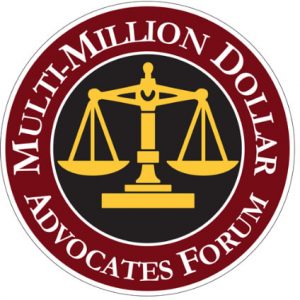Table of Contents
ToggleRights After A Motorcycle Accident
If you’ve never experienced getting out on the open road on a motorcycle, then you don’t know what you’re missing. And millions of Americans agree. The stereotype of a biker wearing a leather vest with motorcycle club insignia is fading as more and more people are embracing the activity. In fact, from 1999 to 2012, the number of registered motorcycles in the U.S. more than doubled from over 4.1 million to 9.4 million. However, many people still worry about the safety afforded by a motorcycle. Let’s face it; in an accident with a car or truck, the motorcycle will lose.
The lack of a surrounding structure to cushion the impact means that an accident is also more likely to result in more serious, if not fatal, injury for the biker. However, if you are involved in an accident, you do still have the same rights as someone involved in a regular car wreck. Here are some things you need to know about motorcycle accidents and the law.
Most Common Motorcycle Injuries
There are a variety of very common injuries associated with motorcycle accidents. Aside from the standard cuts and lacerations, the most common injury involves bone breaks. Legs and arm breaks are standard, but the most common is a broken collarbone since a driver who is thrown from the bike will usually land on the collarbone. This is more than immensely painful—it can also seriously hinder a person’s ability to work.
Major injuries include amputations (usually associated with a foot or leg), head injuries including brain trauma, paralysis, and even death. That is why it is so essential for motorcyclists to wear a helmet. A helmet has a 67% likelihood of preventing brain injuries and a 37% likelihood of preventing deaths in the event of an accident.
Most Common Causes of Motorcycle Accidents
Many drivers seem to have it in for motorcyclists, blaming them instantly for accidents by accusing them of weaving in and out of traffic at high rates of speed. However, the statistics actually show that car drivers are to blame in about 75% of all motorcycle vs. car accidents. Usually, this is because a car or truck driver will change lanes without seeing the motorcycle and sideswipe them or because the driver fails to yield the right of way to a biker. Bikers also have to worry about using “suicide lanes” for much the same reason. If a car is making a left turn across traffic, they may also pull out in front of bikes because they either don’t see the smaller vehicle or cannot accurately visually gauge how fast the bike is traveling. One way to avoid this is to always be diligent and aware of your surroundings. If you know that you are in a vehicle’s blind spot, it may be a good idea to speed up or slow down slightly just to put some distance between yourself and that vehicle. For more help in your case contact an experienced lawyer for your motorcycle accident liability.
Motorcycle Accidents and the Law
If you are involved in a motorcycle accident, then you are entitled to the same coverage and protection under the law. Most lawsuits involving motorcycles involve some form of negligence. The first step in determining if you have a case is to determine if the other person was negligent in some manner, such as not yielding the right of way, driving while intoxicated, or speeding. (Motorcycle drivers can also be found negligent if they cause an accident; they can also, conversely, be sued for this.) If a wreck is serious enough, for instance, that you’re significantly injured, then the negligent party could be responsible for paying:
Compensation You Get From Motorcycle Accident
- Medical bills;
- Lost wages;
- Lost earning potential; and
- Pain and suffering.
Special Considerations in Motorcycle Accidents
There are a few special considerations that you must take into account with these accidents:
- A passenger who is riding behind the driver of a motorcycle can sue the negligent party (be it the car driver or motorcycle driver) if he or she is injured due to that negligence.
- A time limit or “statute of limitations” may be set in your state from the time the accident occurs and the time that you must come forward with your lawsuit. This varies from state to state, but some states have as little as two years.
- Some states have what is referred to as a “No-Fault” system. This means that if you are injured in a motorcycle accident with a car driver, then your insurance must cover your medical bills and other compensation such as lost work. This occurs even if the other driver was negligent and at fault. Under this system, you may only sue for additional damages if you suffer “significant injuries” such as paralysis, disfigurement, amputation or death. A court will have to rule if your injuries qualify as significant.
Contact Our Motorcycle Accident Lawyers For Legal Help:
Because of these special considerations, it is important that you consult with an experienced attorney who can inform you of all of the laws in your area. The Fort Lauderdale personal injury lawyers at the law offices of Wolf & Pravato have extensive experience in negligence cases of this type and will be happy to consult with you about your options.
We also help the victims of a motorcycle accident in the following cities:






















